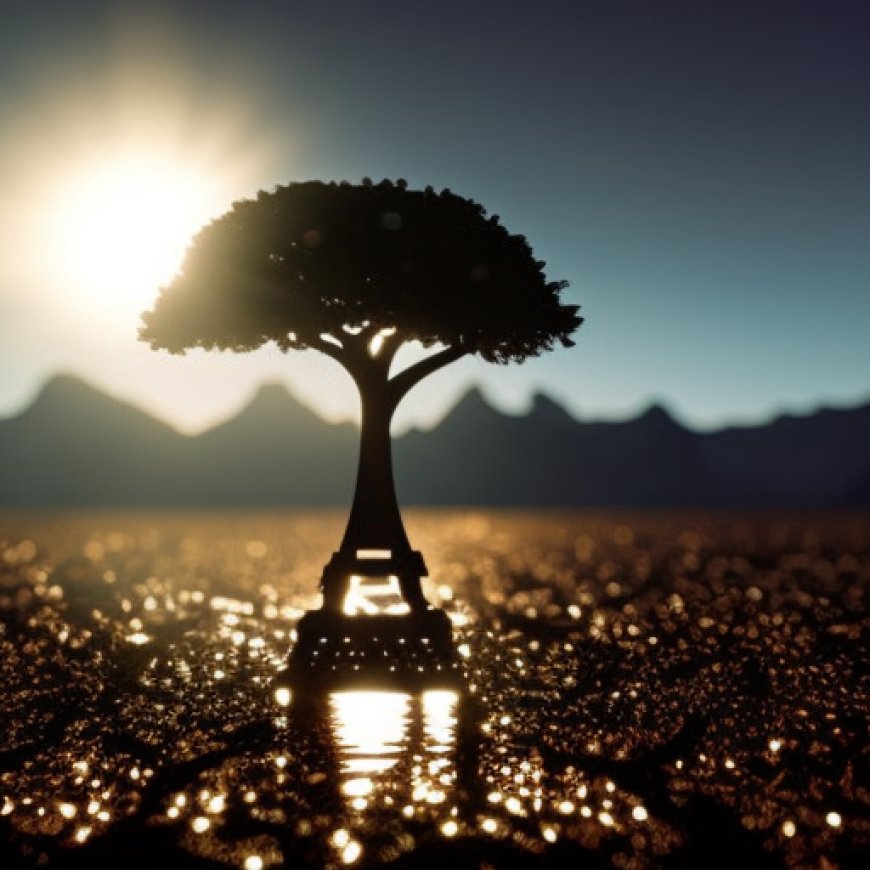Africa’s Climate Crisis
Africa's Climate Crisis The Wilson Quarterly


The Challenges of Climate Change for Farmers in Côte d’Ivoire
The first rays of sunshine slip through dense palm leaves, lighting up the face of Thomas Nampe Moyo, a 40-year-old farmer from the town of Anna, on the outskirts of Côte d’Ivoire’s capital. For more than a decade, Moyo has been growing manioc, a root vegetable crop essential to support his three children. In recent years, however, his lush paradise has turned into a fierce struggle for survival as the challenges of an increasingly unpredictable climate persist.

For Moyo, memories abound of days gone by, when the seasons bestowed flourishing manioc crops. Time has altered the symphony of the seasons and the once reliable rhythm has weakened, giving way to unpredictable rains that disturb former serene dry periods which now include untimely downpours. Erratic climatic fluctuations, formerly a rarity, now cast a shadow over Moyo’s life, where the tuber cops often decay.
“Over the years, my production has dropped drastically. My yield of manioc per hectare has been halved,” Moyo said. “Other farmers in the village face the same challenges as I do—and are also forced to turn to other crops.”
In addition to the unpredictable weather, village farmers are contending with an increase in crop-destroying insects, and a decrease in fish to catch. To meet his challenges, Moyo joined a peri-urban farm program set up by the International Organization for Migration (IOM) last February that helped him cope with climate disruptions. Through the program, Moyo made a strategic shift in his agricultural practices, opting to cultivate shorter-duration crops instead of crops like manioc, which require a nine-month growth period and are highly susceptible to weather variations.

“Today, I’m learning to adapt to market gardening, organic farming, and permaculture—which allows me to continue working the land,” Moyo said with pride, showing off his lush new plots of lettuce, spinach, and cucumber. “These short-lived crops make it possible to juggle with the mood swings of the climate.”
The Disproportionate Impact of Climate Change
The Côte d’Ivoire is not the only country experiencing the harsh realities of climate change. Africa as a whole is particularly vulnerable to its effects, with the continent facing warming at a rate between 1991 and 2021 that is higher than the global average. This has made Africa one of the continents most vulnerable to the effects of climate change.
“The current state of climate in Africa is indeed a grave concern as the continent grapples with a myriad of climate-related challenges that have far-reaching consequences for the environment and the socio-economic well-being of its population,” said Dr. Ernest Asi Afiesimama, a Nigerian environmental and climate scientist at the World Meteorological Organization.
With one of the fastest-growing populations in the world, the lack of electricity access could escalate into an even more critical concern for the continent’s sustainable development, and climate resilience.
Dr. Afiesimama noted the increase in rainfall throughout numerous countries, along with the increased risk for severe flooding and erosion, especially in the western part of the continent. There are also prolonged periods of scorching heatwaves and droughts, which pose a significant threat to the already delicate ecological equilibrium.
Extreme weather events have been particularly deadly this year, with Cyclone Freddy claiming more than 1,000 lives in Malawi last March and flooding in Congo that claimed 400 lives in May. For its part, North Africa experienced extreme heat waves this summer, with excessive temperatures leading to forest fires and loss of life in Algeria, Tunisia, and Morocco. And in September, Libya was struck by the destructive force of Storm Daniel. At the time of this writing, the World Health Organization reported at wilsonquarterly.com

Join us, as fellow seekers of change, on a transformative journey at https://sdgtalks.ai/welcome, where you can become a member and actively contribute to shaping a brighter future.







